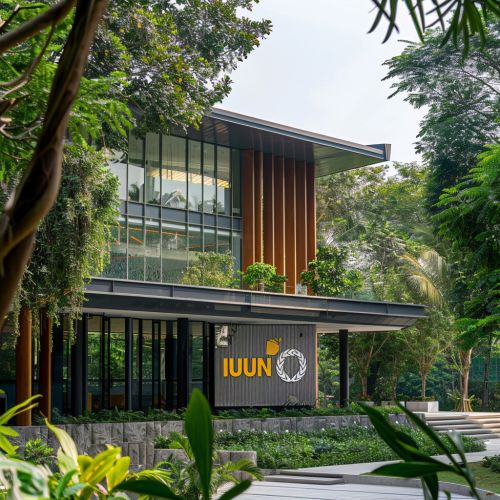IUCN
Overview
The International Union for Conservation of Nature (IUCN) is a global organization dedicated to the conservation of nature and the sustainable use of natural resources. Established in 1948, the IUCN is the world's oldest and largest environmental network, comprising over 1,300 member organizations, including states, government agencies, and non-governmental organizations from more than 160 countries.
History
The IUCN was founded in Fontainebleau, France, in October 1948 by representatives of governments, national and international nature conservation organizations. Its initial focus was on ensuring the survival of nature through the establishment of national parks and reserves worldwide. Over the years, the IUCN's mission has evolved to encompass a broader range of conservation and sustainability issues.
Structure and Governance
The IUCN is governed by a council elected by member organizations every four years at the IUCN World Conservation Congress. The council is responsible for the overall direction and oversight of the IUCN's activities. The IUCN Secretariat, headed by a Director-General, implements the IUCN's programs and activities.
Programs and Initiatives
The IUCN carries out a wide range of programs and initiatives aimed at conserving biodiversity, promoting sustainable development, and supporting environmental governance. These include the IUCN Red List of Threatened Species, the World Heritage program, and the Species Survival Commission.
IUCN Red List
The IUCN Red List of Threatened Species is one of the IUCN's most well-known initiatives. Established in 1964, it is the world's most comprehensive inventory of the global conservation status of biological species. The Red List categorizes species according to their extinction risk, from 'Least Concern' to 'Extinct'.
World Heritage Program
The IUCN's World Heritage Program supports the identification, nomination, and conservation of natural sites of outstanding universal value under the UNESCO World Heritage Convention. The IUCN provides technical advice, monitors the state of conservation of World Heritage sites, and advocates for the effective management of these sites.
Species Survival Commission
The Species Survival Commission (SSC) is a network of experts who provide scientific advice on species conservation. The SSC leads the IUCN's efforts to prevent species extinction and maintain biodiversity.
Impact and Criticism
While the IUCN's work has been widely recognized and praised, it has also faced criticism. Critics argue that the IUCN's approach to conservation is too top-down and fails to adequately involve local communities. Others question the effectiveness of the IUCN Red List, arguing that it is not comprehensive enough and that its categories do not accurately reflect the complexity of species' conservation status.
See Also


